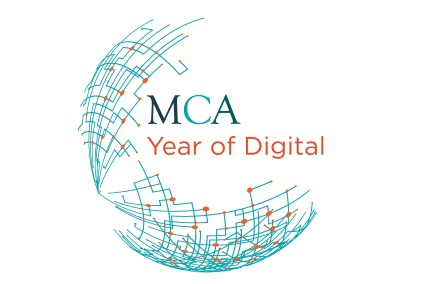Much of the debate so far during an enlightening MCA Year of Digital has focused on the commercial and competitive advantage arguments for embracing Digital relevant to the private sector. There, the “adapt or die” rationale is undeniable. But the relevance of this dynamic to the public sector is perhaps less obviously apparent. So it was refreshing to be at the recent MCA Think Tank roundtable on Digital in Public Services with Kathy Settle, the Director for Digital Policy and Departmental Engagement at the Government Digital Service, and to share perspectives on the imperative for digital in Government.
Without competitive pressures, the public services have been understandably slower to embrace Digital than the private sector. But there is no question that, with GDS leading the way, they are now running to catch up. Activity is driven in part by the austerity agenda and also by the changing social environment. Digital can enhance efficiency and transform the relationship between citizens and the public sector. The goals of saving and reinvention, particularly if realised in combination, could have a profound impact on public service provision.
Customers and citizens expect to engage on a more real-time basis. Social media, Cloud, data analytics and mobile are rapidly transforming us into an increasingly information-driven culture. Our expectations and interactions are fundamentally shifting. There are huge opportunities for those able to move quickly to adopt and exploit the pace and scale of change. But these changes also challenge organisations to evolve their skill sets and thinking, either to transform existing processes to harness Digital or identify where and how they can innovate.
Government will need to work differently, using new skills. Putting the citizen at the centre of everything and driving innovation in a more agile way, from policy development to execution, changes operational considerations and structures. There are also legacy services and systems that will need to co-exist with those that are newly Digital. This is hard stuff to get right in commercial organisations let alone in something as large and complex as the UK’s public service landscape. It requires leadership and vision. And Digital is fast-moving, which is not always been the case for government.
Government is waking up to the need to harness Digital for better public service provision. The Government Digital Strategy is a well-documented initiative with laudable intent. GDS has made significant progress since its inception towards ‘Digital by Default’ and should take much credit for helping to generate a wave of change in how government services are provisioned, procured and implemented. Focusing initially on 25 transaction-heavy ‘exemplars’, GDS has made considerable gains in streamlining operations, whilst maintaining service quality at reduced cost.
The MCA roundtable showcased some of the work that has already gone into these areas and identified challenges which GDS and government have yet to overcome. And there is a lot still to go at to transform the government machine itself.
Government still has to wade through the quagmire of basic wiring issues associated with getting old legacy and new Digital platforms to coexist. There is also substantial work to be done to raise awareness of the opportunities Digital offers and a need to engage the majority of public servants who sit between the policy and strategy innovators and the front line evangelists. This is where much of the change to the “way things have always been done” needs to happen. If GDS is able to broker this, then public services will have the opportunity to transform. The private sector is already moving to a real Digital conversation that is genuinely customer-driven. Truly responsive government lies down a similar path. It is a realistic goal. But we are not there yet.
After much detailed discussion, the MCA Roundtable identified seven core themes to the Public Sector Digital debate:
- What government can coordinate. There is a very important role for central government activism where services that require citizen-centric approaches span numerous agencies and delivery bodies. The role of GDS in aligning capabilities and getting central and local bodies to coordinate their efforts may be critical here.
- Citizen-centric service innovations at the frontline. These are particularly those innovations stemming from direct service pressures and expectations felt by delivery bodies working at the sharp end. These are not quite the same as the market forces operating in the private sector. But they are analogous to them. Successful initiatives of this sort impact citizens directly. Indeed, they are often instigated by citizens or are a response to their demands.
- Government as a facilitator, not solely a direct deliverer of services. Private bodies may be able to provide (often even spontaneously) public service information and even service platforms cheaper, better and more efficiently than government. Government will need to create the right enabling conditions for this new approach, including its continuing efforts to place more information in the public domain that citizens, citizen advocates and Digital entrepreneurs can use. It must also ensure that it applies the right standards and acts as an effective regulator of this sort of provision.
- Digital skills and culture across the public sector. Deepening Digital innovation will depend on a workforce that can embrace and engage it
- Data ownership. Just as in the private sector, where there are real concerns about corporate ownership of consumer data, so government needs to ensure that citizens “own” the information it holds about them. This will change the terms of the debate about data and services, encouraging citizen participation and allaying fears about state paternalism – or worse
- Measurement. This should extend beyond take up and savings and include measures such as social value
- Improving citizen access. The Government has committed to providing Assisted Digital support to help those offline use digital government services. However, through its Digital Inclusion Strategy, it also wants to ensure that everyone in the UK has the digital capability to take advantage of being online. This means tackling the barriers that prevent people from doing so – namely a lack of skills, access, motivation and trust, and not just widening or speeding up the broadband network. In other sectors, such as financial services, it has proved cheaper in the long run to provide target user groups with tablet devices and simple service access mechanisms. Government could learn some lessons from these types of initiative.
Over the remaining months of the Year of Digital, MCA members, including EY, will examine each of these themes.
Of course, government also has a role in relation to the wider economy on Digital. Education policy impacts our Digital skills base. Government can promote Digital through its growth strategy and approach to regulation. Initiatives such as government support for Tech City and the Connected Digital Economy Catapult, which helps new Digital entrepreneurs, are examples of what government is already doing in this area. MCA members have already made contributions to debates about government’s role, especially in the area of skills, and will continue to examine its role as a sponsor and regulator.
Yet there is no question that government’s ability to influence the UK’s wider exploitation of Digital will be impacted beneficially by its own standing in the use and deployment of Digital capabilities. These have the potential to be as transformational to government as they have proved to sectors such as the music industry. It will be a fascinating journey.
Written by Stuart Robinson, Senior Manager – Enterprise Intelligence and John Levell, Associate Partner / ED – Digital at EY, as part of the MCA Year of Digital.


